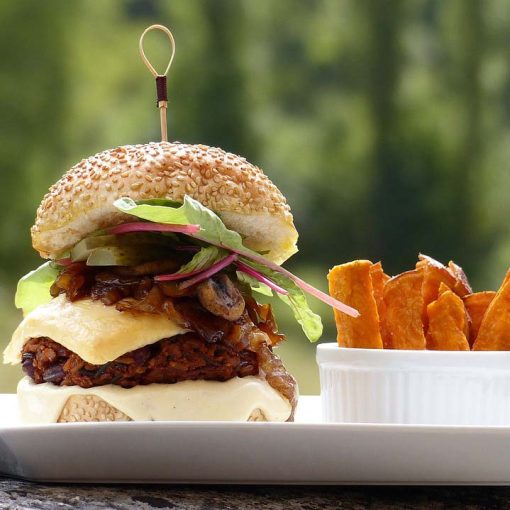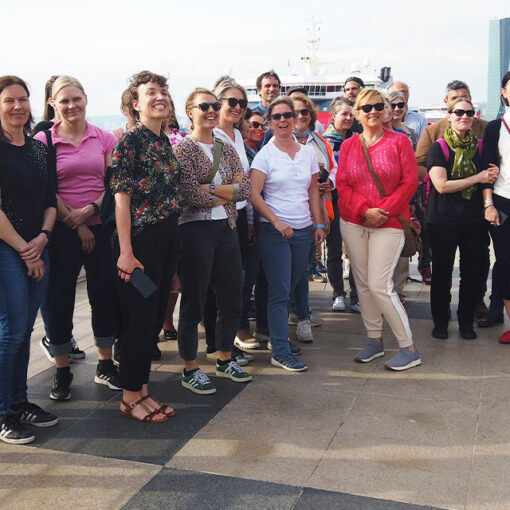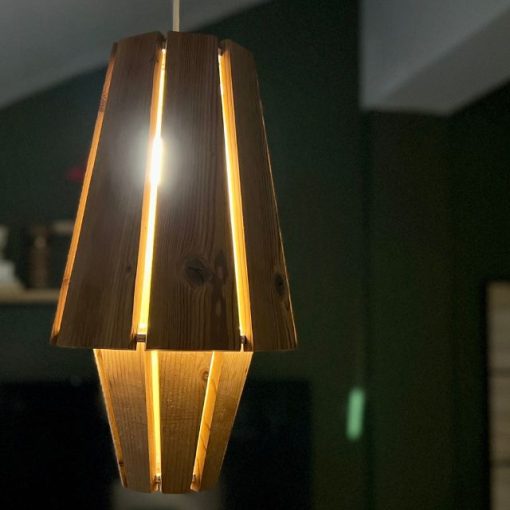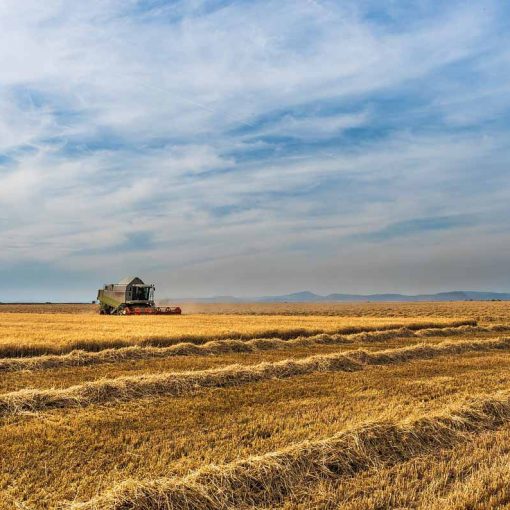According to the revised Waste Framework Directive, biowaste should not be mixed with other types of waste. Latest by the end of 2023, biowaste shall be either recycled at source or separately collected. Moreover, measures promoting material recycling, such as composting, home composting, digestions, and the use of materials originating from biowaste should be encouraged. (Directive 2018/851/EU, Article 22.)
Biowaste management will become even more important in the coming years, benefiting the environment and local circular economy. As a response to the need, the Policy Learning Platform of Interreg Europe has prepared a series of four workshops addressing circular waste management. On 27 January 2022, the first episode with a fitting title of ´Meeting the biowaste challenge’ was organized online.
The workshop covered the overview of the European policy context and available financial support. It was followed by an outlook of existing initiatives, such as good practices and policy improvements achieved in the Interreg Europe co-funded projects. Among other projects, BIOREGIO was asked to share its experience. (Interreg Europe 2022.) The topic of bio-based circular economy and the development of regional policies is also addressed by BIOREGIO – Regional circular economy models and best available technologies for biological streams project.
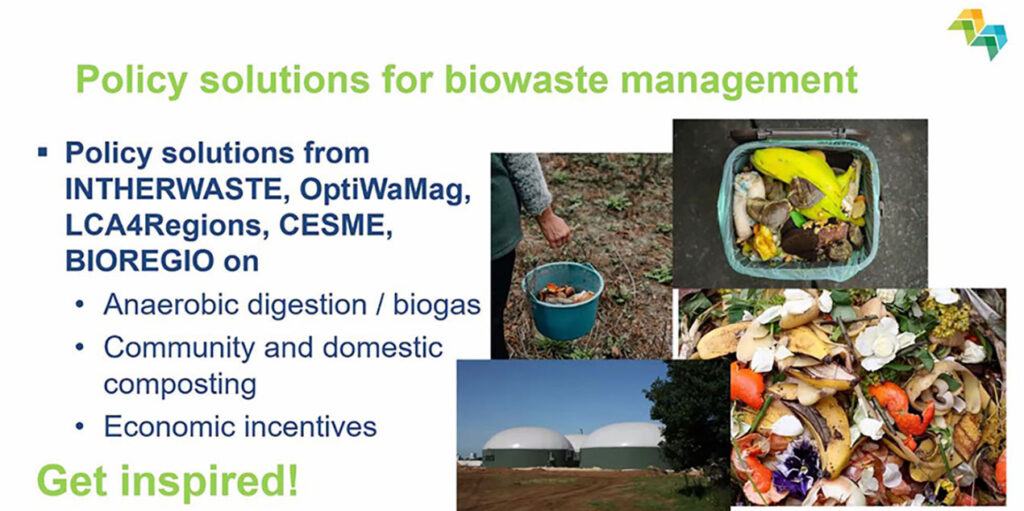
Community composting in the city of Nitra, Slovakia
Community Composting in the City of Nitra has been identified as one of the good practices by the BIOREGIO project partner, the Slovak University of Agriculture in Nitra. Link to the Good practice: Community Composting in the city of Nitra
The community composting has been launched in 2018 as a small-scale community project for 50 households, whose final product, compost, serves involved households and for treatment of public areas. The project has been developed by the civic association “Composting Community”. The first grant provided by Nitra Community Foundation was 4,000 EUR (3,000 EUR for the composter and 1,000 EUR for promotion and composting accessories). Currently, there are no additional costs related to the operation of the composter since it is done voluntarily by the members of the civic association. However, another small grant has been obtained in 2020, to organize a lecture with an expert and issue brief guidelines for people on how to handle bio-waste properly.
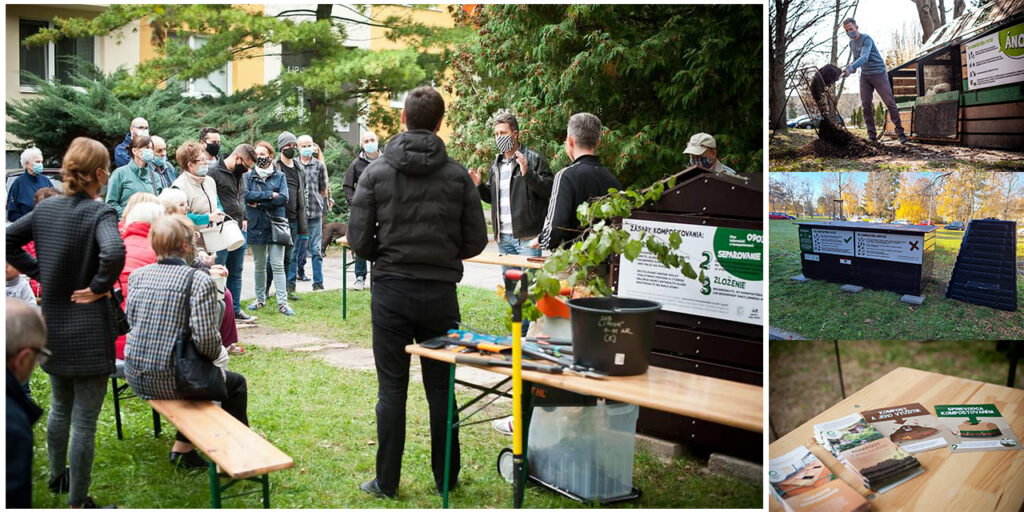
An important goal of the pilot project was to get the local community familiar with the issue of composting, mainly in terms of its benefits and perception (e.g., prejudices about odour, rodents, flies). Each household obtained a manual for bio-waste sorting, a bio-waste bucket and a key from the composter, as it is lockable.
Thanks to low costs, the potential for the implementation of such projects is very high. Other communities in the city of Nitra have been already inspired by this pilot project. A new project for 60 households has been developed free of charge by a civic association. In 2020, the cooperation with Nitra city had started and in 2021 the new sites for composters have been identified. The city contracted 40 new community composters that are currently being deployed. The city is preparing also lectures on composting as a part of informal environmental education.
Authors
Katerina Medkova works as an RDI specialist at LAB University of Applied Sciences and is the BIOREGIO Communication Manager. BIOREGIO is an Interreg Europe funded project, which started in January 2017 and lasts until December 2022. LAB University of Applied Sciences acts as BIOREGIO lead partner. Link to BIOREGIO project
Martin Valach works as a project administrator at the Office of Project and Transfer Activities, Slovak University of Agriculture in Nitra, Slovakia. In the Interreg Europe BIOREGIO project, he is in charge of administrative and communication activities.
References
Directive 2018/851/EU of the European Parliament and of the Council of 30 May 2018 amending Directive 2008/98/EC on waste. EUR-lex. Cited 24 Feb 2022. Available at https://eur-lex.europa.eu/legal-content/EN/TXT/PDF/?uri=CELEX:32018L0851&rid=5
Interreg Europe. 2022. Circular Waste Management Series l: Biowaste challenge: Keynote speeches. YouTube. Cited 6 Feb 2022. Available at https://www.youtube.com/watch?v=R0-sbhF23Hc&t=487s
Kralik, S. 2020. Civic Association “Komunita kompostuje”. Facebook. Cited 24 Feb 2022. Available at https://www.facebook.com/KomunitaKompostuje/photos/?ref=page_internal
Links
Link 1. Interreg Europe. 2022b. Good practice: Community Composting in the city of Nitra. Cited 24 Feb 2022. Policy Learning Platform. BIOREGIO. Available at https://www.interregeurope.eu/policylearning/good-practices/item/3071/community-composting-in-the-city-of-nitra/
Link 2. Interreg Europe. 2022a. Project Summary. BIOREGIO. Cited 24 Feb 2022. Available at https://www.interregeurope.eu/bioregio/

